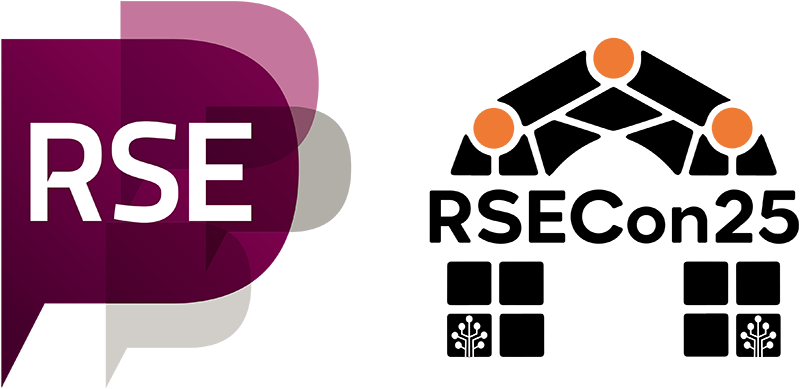About our sponsors
UK AI Research Resource


AIRR: The UK’s National AI Research Resource
The Artificial Intelligence Research Resource (AIRR) is the UK’s national infrastructure for advancing AI research. It comprises two state-of-the-art supercomputers: Dawn (University of Cambridge) and Isambard-AI (University of Bristol). Researchers can access AIRR through open calls such as UKRI’s Expression of Interest to Use UK Large Scale Compute and DSIT’s Sovereign AI AIRR Launch Opportunity.
Bristol Centre for Supercomputing (BriCS)
Led by the University of Bristol, the Bristol Centre for Supercomputing (BriCS) builds on the University’s expertise in high performance computing, establishing the centre as a leading host for some of the UK’s most sophisticated supercomputers. As well as hosting Isambard-AI, they also host Isambard 3, a national tier 2 supercomputer for research.
Research Computing Services (RCS)
RCS at the University of Cambridge runs some of the world’s most powerful computational and data infrastructure. It provides advanced, secure and scalable digital research platforms for the University and the UK academic sector.
RCS is home to the Cambridge Open Zettascale Lab, an industry-funded initiative supported by Dell Technologies in partnership with UKAEA, DiRAC, Intel, and Pembroke College. RCS also hosts the Research Software Engineering (RSE) team for the Institute of Computing for Climate Science.

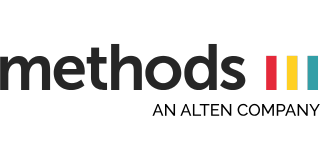
Microsoft is a global technology provider and cybersecurity business, holding relationships with the vast majority of universities and research entities across the world. Microsoft offers productivity tools in our Microsoft 365 cloud as well as advanced computing capability through our public cloud platform, Microsoft Azure, including powerful AI tools. We want to encourage use of our technology to empower those who do and support research to achieve more.
Methods CoreAzure is a leading Microsoft cloud solutions provider specialising in Azure infrastructure for UK universities and colleges. Following CoreAzure’s merger with Methods in January 2024, we now offer comprehensive services including data analytics and research computing support.
Our partnership with Bizdata enables us to implement Loome – a specialised platform that helps research software engineers modernise their computing infrastructure whilst maintaining the flexibility needed for cutting-edge research. This platform bridges enterprise-grade cloud technology with academic research requirements, offering self-service resource management and streamlined data workflows.
For RSE conference attendees seeking robust yet flexible research computing solutions, we provide the expertise to transform your digital infrastructure whilst supporting your unique research needs.

Nuvolos – Accelerating Sustainable, Reproducible, and Collaborative Research
RSEs work at the intersection of research and software engineering, combining domain expertise with technical skill to deliver reproducible science. But too much of that time is swallowed by fixing broken dependencies, rebuilding environments for each project, and keeping infrastructure running. Nuvolos takes on the heavy computational lifting, provisioning, scaling, and managing compute, so RSEs can focus on the science itself.
Nuvolos is a seamlessly integrated, powerful, and collaborative cloud‑based computational workspace. It removes operational friction, simplifies software setup, and ensures computational environments are instantly available, anywhere, through a browser.
Designed with the evolving needs of the RSE community in mind, Nuvolos reflects shared values that drive sustainable, high‑impact research:
- Empowerment – Instant access to tools like Python, R, Julia, MATLAB, Stata, any IDE, backed by scalable CPU & GPU compute.
- Reproducibility & Rigor – Full versioning ensures every experiment can be trusted, verified, and built upon.
- Collaboration & Accessibility – Seamless teamwork across institutions with shared, browser‑based access to computational resources.
- Sustainability & Reusability – Maintainable code, reusable workflows, and preserved datasets extend research impact beyond a single project.
- Community Contribution – Support for open science practices, helping RSEs share tools, methods, and results with the wider community.
- Innovation & Agility – Continuous integration of the latest frameworks, from TensorFlow and PyTorch to AlphaFold, keeps research on the cutting edge.
- Simplicity & Control – Backend complexity is managed for you, while you retain full control over projects and environments.
Nuvolos is more than a platform. It is a partner in advancing science that is sustainable, reproducible, and openly shared, helping the RSE community work more productively, collaboratively, and with lasting impact.

The Alan Turing Institute is the UK’s national institute for data science and artificial intelligence.
It is named in honour of Alan Turing, whose pioneering work in mathematics, engineering and computing is considered to have laid the foundations for modern-day data science and AI.
At the Turing we solve real world problems by bringing together computer scientists, engineers, statisticians, mathematicians, ethicists, scientists and colleagues from the humanities. This multi-disciplinary approach allows us to innovate and develop world class research in AI and data science, generating the creation of new businesses, services and jobs. Of equal importance is Turing’s work to lead the public conversation around the societal impact of AI and data science, and to ensure that research and development is carried out within an ethical framework.

The Research Software Engineering (RSE) Team at the University of Sheffield collaborates with researchers across all disciplines. Established in 2016, the group now includes over a dozen full-time RSEs with backgrounds in science, engineering, data science, and computing.
RSE Sheffield collaborates with research teams to develop high-quality, sustainable software that underpins impactful research. We work across faculties—from physics and engineering to the humanities—bringing best practices in software engineering to academic environments. The team has expertise in various domains such as code development, optimisation and performance, reproducibility, and implementing machine learning and AI models.
Researchers can embed RSEs into grant applications to fund collaborative work, or access internal schemes such as the yearly RSE call for proposals, which provides free collaboration to academic software projects. Short-term help is also offered via regular Code Clinics, workshops, and training sessions. The team promotes open and reproducible science, encouraging the use of version control, automated testing, documentation, and FAIR principles.
By mixing technical and research expertise, our team enables research to be more robust, transparent and aligned with funder requirements for reproducibility and open science.
For more information or to request support, email [email protected] or visit

2i2c provides a managed, customized JupyterHub service that is tailored for research and education communities. We manage entirely non-proprietary, open-source tools with a Commitment to Open Technology and give our user communities the Right to Replicate this infrastructure with or without 2i2c. 2i2c co-creates upstream contributions to open-source communities using an engineering consultancy service as a part of continuously operating and improving this infrastructure.

AWE – 75 years of keeping our nation safe
Celebrating 75 years of keeping our nation safe, AWE plays a critical role in national defence and security. Tasked with delivering the UK’s Continuous At Sea Deterrence (CASD) safely and securely, AWE supports the UK’s strategic deterrent through nuclear science and technology.
As the organisation embarks on a once-in-a-generation programme to design and deliver the next generation capability to support CASD, AWE continues to evolve its capabilities to meet the demands of a changing world. Central to this mission is the High-Performance Computing (HPC) group, whose work underpins the simulation and modelling of complex nuclear systems – ensuring safety, reliability, and performance without the need for live testing.
Research Software Engineering (RSE) at AWE is at the forefront of this effort. RSE teams develop and maintain sophisticated software systems that must meet the highest standards of safety and assurance. These systems are designed to model multi-physics phenomena across vast spatial and temporal scales, requiring innovations in numerical methods, parallel computing, and data management. The technical challenges are immense: from ensuring deterministic behaviour in safety-critical code to optimising performance on some of the UK’s most powerful supercomputers.
AWE’s work is inherently interdisciplinary, drawing on themes from the broader science of nuclear systems – where physics, materials science, and computational engineering converge. The organisation works in close partnership with the MOD, wider government, UK academia, industry, and international allies to ensure the UK’s deterrent remains credible and effective.
As AWE marks its 75th anniversary, it remains committed to scientific excellence, national security, and the stewardship of one of the most complex engineering missions in the world.
UK Ministry of Defence © Crown Owned Copyright 2025/AWE

EPCC’s activities are driven by one central aim: to accelerate the effective exploitation of novel computing and data science throughout industry, academia and commerce.
This has been our mission for over 30 years and it underpins our position as the UK’s premier supercomputing centre, renowned internationally for innovation and leading-edge research. Our work is guided by key goals and objectives that support this mission.
We deliver world-class, high performance computing (HPC) and data services to benefit our users and partners. We also support businesses with our advanced computing facilities and capabilities.
We are a key member of UK and worldwide communities in the fields of HPC, software and data, including being part of the founding of the Research Software Engineering community.
Our computing services are housed in the Advanced Computing Facility, EPCC’s high performance computing data centre. These include the Edinburgh International Data Facility, which brings together a portfolio of services that support projects from across the Edinburgh and South East Scotland City Region Deal and its Data-Driven Innovation initiative.
We have invested in innovative approaches to energy management at the ACF, minimising energy usage since its refurbishment in 2004 and using only green tariff electricity.
We undertake globally-important computing research and also facilitate the conduct of ethical, responsible research across disciplines in line with the University of Edinburgh’s commitment to research integrity.
We are a leading provider of high performance computing and data science education and training in Europe, providing practical training delivered by experienced practitioners. Our two established Masters programmes are built on 30 years of teaching excellence, and we work across the University to deliver interdisciplinary programmes drawing on expertise from many areas. We also offer the opportunity to study for a PhD in areas related to HPC, computational data science and software sustainability.
We have over 140 full-time staff and are committed to diversity and inclusion. We are a founding member of the Women in HPC network, which works to improve the representation of women in the HPC community. We also run an active outreach programme, regularly participating in science festivals, and offer work experience placements and intern opportunities for senior school pupils and students.
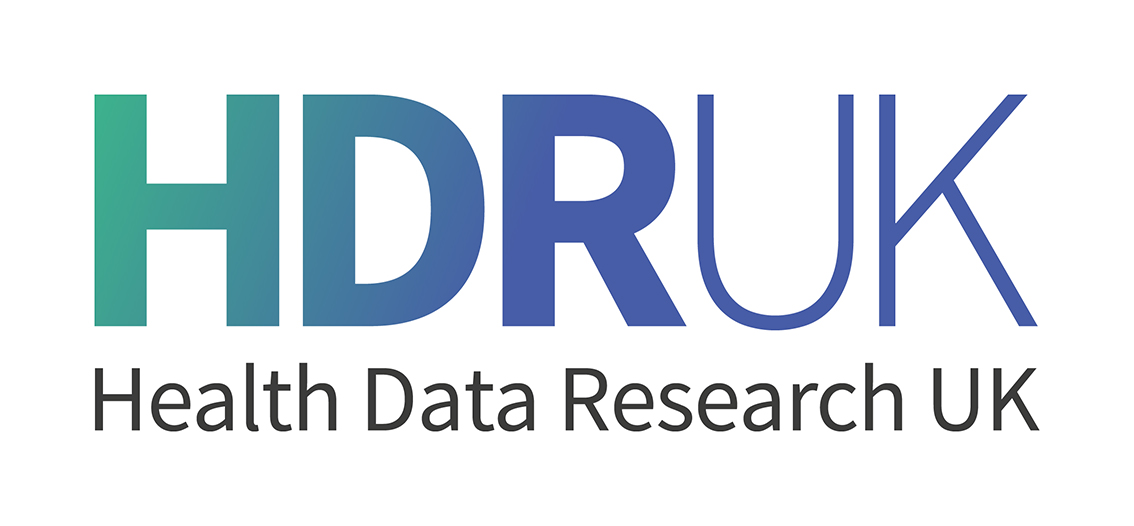

Health Data Research UK (HDR UK)
Health Data Research UK (HDR UK) is the UK’s national institute for health data science. We are an independent charity working to accelerate trustworthy data use to enable discoveries that improve people’s lives. Our vision is for large-scale data to benefit every interaction with patients, every clinical trial and every biomedical discovery, and to transform public health.
We work in partnership with the NHS, industry, charities and universities to realise the potential of the UK’s wealth of health data in life-changing research. Through collaboration, we’re working to make it easier for researchers to find, access and work with the data they need to generate new discoveries, using streamlined systems that are designed to ensure the privacy and security of people’s data. Patients and the public are actively involved in shaping HDR UK’s work and ensuring it delivers public benefit.
DARE UK (Data and Analytics Research Environments UK)
DARE UK is a data research infrastructure programme empowering innovators working in partnership with the public to deliver a national network of secure data infrastructures for better research outcomes. Our vision is for all research and innovation in the UK to benefit from seamless, secure use of diverse sensitive data at a pace, efficiency and scale that accelerates research productivity for the public good.
We work with partners across the data research ecosystem to enhance access to sensitive data for research in the public interest through various funded and community-driven initiatives, embedding public involvement and engagement throughout.

Right across the world, every single day, people make decisions based on the weather and our changing climate.
We combine weather and climate science and data with expert insights to help with those decisions so people can be safe, well and prosperous.
Everything we do is based on world-leading science and enhanced by the close working relationships we have with partners around the globe. We collect and make sense of massive amounts of data every day, using cutting-edge technology to deliver it into the hands of the people that need it, when it matters.
RSEs at the Met Office (which we call “Scientific Software Engineers” or SSEs) have a long standing history and a similar and parallel career path to scientists. They work on a massive diversity of areas, from optimising weather and climate codes for our world-leading supercomputer, working on weather radar, forecast blending and post-processing pipelines, autonomous ocean gliders, supporting and enabling new science through technology, such as the growth of ML, steering the pulling through of science into 24/7 production, and helping develop weather and climate products and services to customers.

Oxford Quantum Circuits (OQC) is pioneering the quantum-accelerated world, delivering enterprise-grade quantum systems designed for commercial and strategic advantage. As Europe’s first Quantum-Compute-as-a-Service provider – and the only company integrating quantum in commercial data centres, OQC brings quantum capability to the heart of financial and national infrastructure. Our application-optimised compute empowers customers in finance, security, and defence to solve intractable problems—reshaping industries and strengthening sovereign advantage.

The Software Sustainability Institute is the first organisation in the world dedicated to improving software in research. We help people build better and more sustainable software to enable world-class research.
Since 2010, the SSI set itself the ambitious goal of transforming academic culture by establishing the principle that reliable, reproducible, and reusable software is necessary across all research disciplines. Despite the magnitude of this challenge, the SSI has delivered substantive improvements and achieved global successes.
We believe that great research needs diverse voices and sustainable careers. That is why we support research software professionals through mentorship, training, and community programmes that promote inclusion, visibility, and growth.
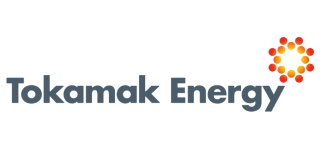
Tokamak Energy is a leading fusion energy and superconducting technology company, based in the UK, with subsidiaries in the U.S. and Japan. Founded in 2009 as a spin-out from the UK Atomic Energy Authority (UKAEA), It is the only private company with over a decade of experience developing the two leading technologies for efficient, commercially viable fusion energy: the compact spherical tokamak and high temperature superconducting (HTS) magnets.
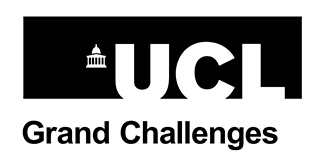
UCL has a proud tradition of harnessing cutting-edge research to tackle the world’s most pressing challenges, and of doing this collaboratively across disciplinary boundaries. Over a decade ago, we launched the Grand Challenges programme to support this ethos. It recognised the grassroots drive for interdisciplinary work and provided seed funding to spark early-stage research and collaboration. Since then, the programme has gained momentum and inspired similar initiatives at institutions around the world.
As part of UCL’s Strategic Plan 2022–2027, we’ve identified five new Grand Challenges themes. These reflect areas where UCL has distinctive academic strengths and where our community is eager to coordinate efforts for greater impact. Our goal is to encourage collaboration across disciplines and between academic and professional services staff, working together to create meaningful change.
The five themes are:
- Data-Empowered Societies
- Climate Crisis
- Mental Health and Well-being
- Inequalities
- Intercultural Communication
Through these themes, the Grand Challenges programme supports, funds, and facilitates innovative research, education, and partnerships that cross traditional academic boundaries. It is open to the entire UCL community, including researchers, educators, innovators, and professional services staff, as well as external partners in education, industry, policy, government, and the not-for-profit sectors.

About UK Research and Innovation – UKRI
UK Research and Innovation (UKRI) is a non-departmental public body sponsored by the Department for Science, Innovation and Technology (DSIT). We support, carry out, and fund research across a vast range of disciplines, promoting best practices for open research including a strong commitment to diversity. As all research these days requires computing and data, and is increasingly multi-disciplinary, we are developing a state-of-the-art Distributed Research Infrastructure (DRI), aiming to connect researchers and innovators seamlessly to the tools they need.
The UKRI stand is organised by the Science and Technology Facilities Council (STFC), one of the nine councils in UKRI. STFC covers research in astronomy, particle physics, space science, neutron and photon sources, lasers, materials sciences, and much more. STFC Scientific Computing provides software for research in chemistry, physics, biology, climate, materials science, data repositories, data engineering, numerical algorithms and much more. An RSE “theme” supports and unifies RSE activities across the organisation.”
